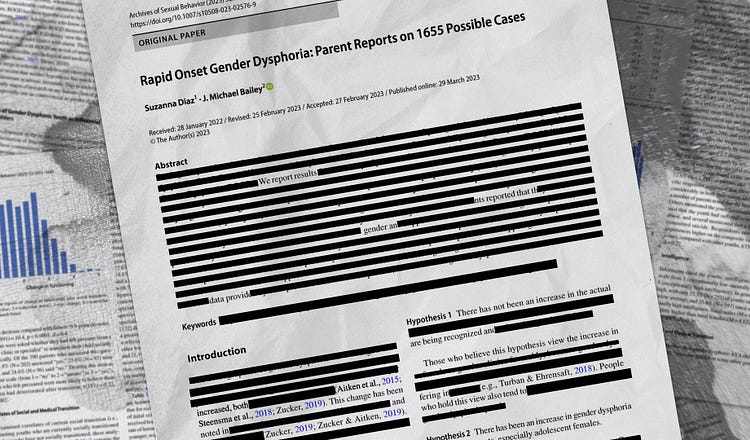My Research on Gender Dysphoria Was Censored. But I Won’t Be.

(Photo illustration by The Free Press)
Trans activists forced the retraction of my paper. Their efforts have redoubled my commitment to the truth.
841
I am a professor of psychology at Northwestern University. I have been a professor for 34 years, and a researcher for 40. Over the decades, I have studied controversial topics—from IQ, to sexual orientation, to transsexualism (what we called transgenderism before 2015), to pedophilia. I have published well over 100 academic articles. I am best known for…
Continue Reading The Free Press
To support our journalism, and unlock all of our investigative stories and provocative commentary about the world as it actually is, subscribe below.
$8.33/month
Billed as $100 yearly
$10/month
Billed as $10 monthly
Already have an account?
Sign In

